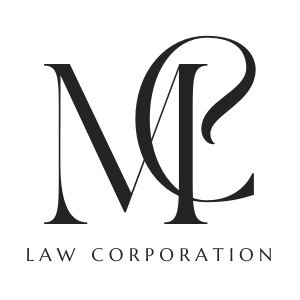Best Work Injury Lawyers in Singapore
Share your needs with us, get contacted by law firms.
Free. Takes 2 min.
Or refine your search by selecting a city:
List of the best lawyers in Singapore
About Work Injury Law in Singapore
Work injury law in Singapore is primarily governed by the Work Injury Compensation Act (WICA). This legislation is designed to ensure that employees who suffer injuries or diseases in the course of their work are compensated fairly and efficiently. The Act provides eligible employees with a straightforward and quick alternative to seeking compensation through common law. Employers in Singapore are required to cover their employees under this scheme to safeguard against occupational accidents and diseases.
Why You May Need a Lawyer
While the Work Injury Compensation Act offers a clear path for compensation, several circumstances might necessitate legal assistance. Common situations include disputes over the eligibility of a claim, the amount of compensation awarded, or conflicting medical assessments. Additionally, if an employee believes that their injury resulted from negligence by the employer or a third party, pursuing compensation through common law may be advisable, in which case legal representation becomes crucial. Navigating these complex legal waters efficiently often requires the expertise of a lawyer specializing in work injury cases.
Local Laws Overview
Key aspects of work injury laws under the Work Injury Compensation Act in Singapore include:
- Eligibility: Both local and foreign employees are covered, except for independent contractors and domestic workers.
- Compensation: Covers medical leave wages, medical expenses, and lump-sum payments for permanent incapacity or death.
- Reporting: Employees must report accidents to their employer as soon as possible, and employers must notify the Ministry of Manpower (MOM) within 10 days of the accident.
- Claims: Employees or their dependents should file claims within one year of the accident. Disputes regarding claims can be referred to MOM for resolution.
- Time Limits: There are strict time limits for the submission of claims and medical assessments necessary for compensation processing.
Frequently Asked Questions
What is the Work Injury Compensation Act (WICA)?
The Work Injury Compensation Act is a legislation that enables employees in Singapore to seek compensation for work-related injuries or diseases without having to file a civil lawsuit.
Who is eligible for claims under WICA?
All employees who sustain work-related injuries or diseases are eligible, except for those employed in domestic sectors and independent contractors.
How much compensation can I claim?
The amount of compensation under WICA can vary based on the severity of injuries and the medical costs incurred but generally involves medical expenses, lost wages during medical leave, and more for severe cases of permanent incapacity.
Do I need a lawyer to claim compensation under WICA?
While it is not mandatory to hire a lawyer for WICA claims, legal advice may be beneficial, especially if facing disputes or seeking compensation beyond the WICA, like in cases involving negligence.
What should I do if my claim is denied?
If your claim is denied, it is advisable to consult with a lawyer who can guide you through the process of appeal and represent your case with the Ministry of Manpower.
How long do I have to file a claim?
Claims should be filed within one year of the accident. It is essential to report the injury to your employer immediately to ensure all procedures are followed correctly.
Can I pursue a civil lawsuit if covered under WICA?
Yes, if you believe your injury resulted from negligence, you may opt for a common law claim, but this requires proving negligence and typically necessitates legal assistance.
Are all injuries covered under WICA?
WICA covers injuries sustained in the course of employment, including industrial accidents and occupational diseases. However, injuries sustained due to misconduct or negligence on the worker's part may not be covered.
What happens if there is a disagreement over the compensation amount?
Disputes over compensation amounts can be addressed through mediation or adjudication by the Ministry of Manpower. Legal representation may be beneficial during these proceedings.
Can my employer sack me for filing a WICA claim?
No, it is illegal for an employer to dismiss or penalize an employee for filing a legitimate WICA claim.
Additional Resources
For more assistance and information regarding work injuries, the following resources may be of help:
- Ministry of Manpower (MOM): Offers comprehensive guides and assistance for work injury cases.
- Workplace Safety and Health Council: Provides additional resources on maintaining workplace safety.
- Law Society of Singapore: To find legal professionals specializing in work injury claims.
Next Steps
If you need legal assistance concerning a work injury, consider consulting a lawyer who specializes in work injury claims. They can provide valuable advice on the best course of action, whether it involves filing a claim under WICA, pursuing a common law claim, or appealing a denied application. Gather all relevant documentation, such as medical reports, accident reports, and correspondence with your employer, to facilitate a smooth consultation process with your legal advisor.
Lawzana helps you find the best lawyers and law firms in Singapore through a curated and pre-screened list of qualified legal professionals. Our platform offers rankings and detailed profiles of attorneys and law firms, allowing you to compare based on practice areas, including Work Injury, experience, and client feedback.
Each profile includes a description of the firm's areas of practice, client reviews, team members and partners, year of establishment, spoken languages, office locations, contact information, social media presence, and any published articles or resources. Most firms on our platform speak English and are experienced in both local and international legal matters.
Get a quote from top-rated law firms in Singapore — quickly, securely, and without unnecessary hassle.
Disclaimer:
The information provided on this page is for general informational purposes only and does not constitute legal advice. While we strive to ensure the accuracy and relevance of the content, legal information may change over time, and interpretations of the law can vary. You should always consult with a qualified legal professional for advice specific to your situation.
We disclaim all liability for actions taken or not taken based on the content of this page. If you believe any information is incorrect or outdated, please contact us, and we will review and update it where appropriate.
Browse work injury law firms by city in Singapore
Refine your search by selecting a city.
















